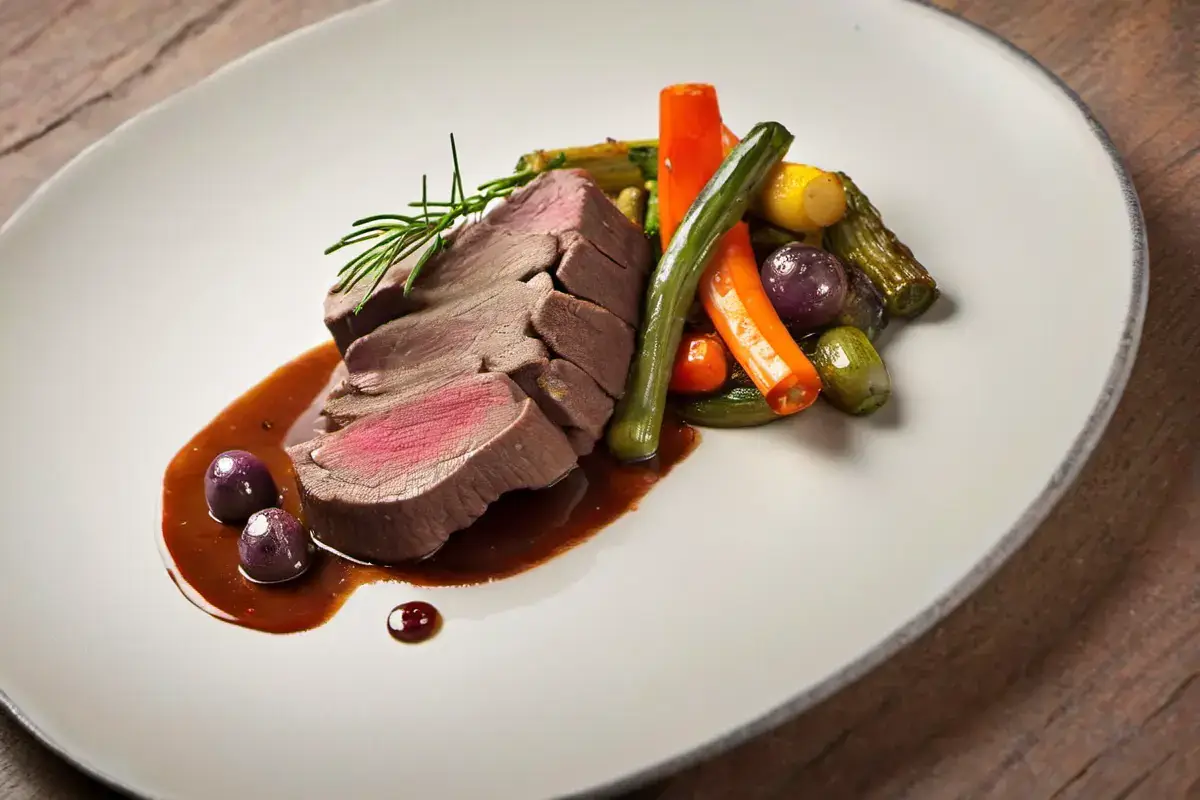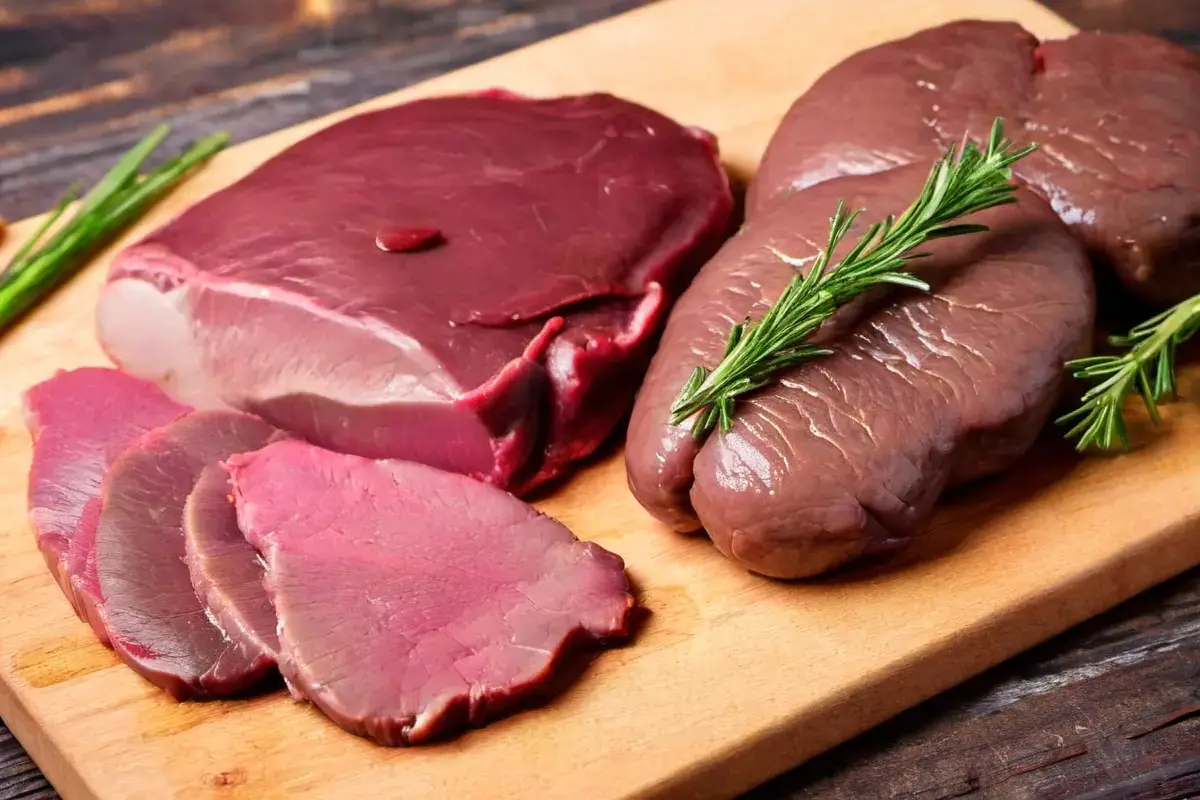When it comes to liver, the debate often revolves around whether chicken liver is better than beef liver. This comparison matters not just for culinary enthusiasts, but also for those keen on optimizing their nutrition. In this detailed article, we will explore the nutritional values, health benefits, risks, culinary uses, economic and environmental impacts, and expert opinions on chicken liver versus beef liver. By the end, you’ll have a clear understanding of which liver type might be best for your diet.
Introduction and Overview
The question “Is chicken liver better than beef liver?” sparks interest among health-conscious individuals. Liver, being a nutrient-dense organ meat, offers numerous benefits. However, the choice between chicken liver and beef liver can depend on various factors such as nutritional content, health benefits, and personal preferences.
Nutritional Comparison
Nutritional Value of Chicken Liver
Chicken liver is known for its rich nutrient profile. It contains high levels of protein, essential vitamins, and minerals.
- Macronutrients: Chicken liver is packed with protein, offering approximately 26 grams per 100 grams. It also contains moderate amounts of fat and minimal carbohydrates.
- Vitamins and Minerals: It’s a powerhouse of vitamins A, B12, and folate. Additionally, it provides significant amounts of iron, zinc, and selenium.
- Cholesterol Content: While chicken liver is nutritious, it is also high in cholesterol. About 100 grams of chicken liver contains over 500 mg of cholesterol.
Chicken liver stands out for its nutrient density, making it an excellent choice for boosting vitamin and mineral intake.
Nutritional Value of Beef Liver
Beef liver, similarly, is nutrient-dense and offers a slightly different nutrient profile compared to chicken liver.
- Macronutrients: Beef liver provides around 28 grams of protein per 100 grams. It has a higher fat content than chicken liver and negligible carbohydrates.
- Vitamins and Minerals: It is extremely rich in vitamin A, B12, and riboflavin. Furthermore, it contains ample amounts of iron, copper, and choline.
- Cholesterol Content: Like chicken liver, beef liver is high in cholesterol, with about 400 mg per 100 grams.
Beef liver’s nutrient profile highlights its role in supporting various bodily functions, particularly for energy and blood health.
Head-to-Head Nutritional Comparison
Comparing chicken liver and beef liver directly can help us understand their nutritional differences more clearly.
- Protein Content: Both chicken liver and beef liver are excellent protein sources, vital for muscle repair and growth.
- Vitamin Content: Beef liver edges out slightly in vitamin A and B12 content, essential for vision and neurological function. Chicken liver, however, still provides significant vitamin levels.
- Mineral Content: Both types of liver are rich in iron, crucial for preventing anemia. Chicken liver has higher zinc, while beef liver offers more copper.
- Overall Nutritional Superiority: While both livers are nutritional powerhouses, beef liver contains slightly higher levels of certain vitamins and minerals. However, chicken liver’s nutrient content is also impressive.
In terms of overall nutritional superiority, both livers offer unique benefits, making them valuable additions to a balanced diet.
Health Benefits and Risks
Health Benefits of Chicken Liver
Chicken liver offers numerous health benefits, making it a valuable addition to your diet.
- Vision Improvement: High levels of vitamin A in chicken liver help maintain good vision and prevent night blindness.
- Immune System Boost: Chicken liver is rich in zinc and selenium, which are essential for a robust immune system.
- Energy Levels: It contains a significant amount of iron and B vitamins, crucial for energy production and preventing fatigue.
- Liver Health: The nutrients in chicken liver support the body’s detoxification processes and overall liver function.
- Cardiovascular Health: Although high in cholesterol, the balance of vitamins and minerals in chicken liver can support heart health when consumed in moderation.
Chicken liver is a nutritional powerhouse, contributing to better vision, energy, and immune function.
Health Benefits of Beef Liver
Beef liver is equally beneficial, offering a different set of health advantages.
- Brain Function: The high B12 content in beef liver supports brain health and cognitive function.
- Red Blood Cell Production: With abundant iron and copper, beef liver aids in the production of red blood cells, preventing anemia.
- Muscle Growth and Repair: Its rich protein content is essential for muscle growth and repair, making it a favorite among athletes.
- Detoxification: Like chicken liver, beef liver supports detoxification due to its high nutrient content.
- Overall Vitality: The various vitamins and minerals in beef liver contribute to overall vitality and well-being.
Beef liver stands out for its ability to enhance brain function, support blood health, and boost overall vitality.
Potential Risks and Concerns
Despite their benefits, consuming liver—whether chicken or beef—comes with certain risks.
- High Cholesterol: Both chicken liver and beef liver are high in cholesterol. Excessive consumption can negatively impact heart health, especially for those with existing conditions.
- Vitamin A Toxicity: Overconsumption of liver can lead to vitamin A toxicity, which can cause symptoms like nausea, dizziness, and even more severe health issues.
- Heavy Metals: Liver can accumulate heavy metals like cadmium and lead, posing health risks if consumed in large amounts.
It’s essential to enjoy liver in moderation to reap its benefits without experiencing adverse effects. For a comprehensive overview of liver consumption risks and benefits, the Harvard T.H. Chan School of Public Health offers valuable insights.
Culinary Uses and Taste
Culinary Uses of Chicken Liver
Chicken liver is quite versatile in the kitchen. It can be used in various dishes, each offering unique flavors and textures.
- Popular Recipes: Chicken liver pâté, chicken liver stir-fry, and chicken liver mousse are popular dishes. These recipes highlight its rich flavor and smooth texture. For more chicken liver recipes, check out this guide to chicken cutlet recipes.
- Cooking Methods: Chicken liver can be sautéed, grilled, or broiled. Each method enhances its natural taste.
- Flavor Profile and Texture: Chicken liver has a milder flavor compared to beef liver, with a delicate texture that becomes creamy when cooked.
Chicken liver’s mild flavor makes it adaptable to a wide range of recipes, allowing for creative culinary experimentation.

Culinary Uses of Beef Liver
Beef liver also shines in the culinary world, known for its rich and robust taste.
- Popular Recipes: Beef liver and onions, liver stews, and liver pâté are classic dishes. They showcase beef liver’s deep, savory flavor. Explore more delightful beef recipes with these chuck roast recipes.
- Cooking Methods: Beef liver can be fried, baked, or braised. Proper cooking techniques ensure tenderness and enhance its robust flavor.
- Flavor Profile and Texture: Beef liver has a stronger, more pronounced flavor than chicken liver. Its texture is firmer, making it ideal for hearty dishes.
Beef liver’s bold taste and firm texture make it a staple in many traditional recipes, offering a satisfying dining experience.

Taste and Preference
The preference between chicken liver and beef liver often comes down to individual taste.
- General Preferences: Many people prefer chicken liver due to its milder taste and smoother texture. It’s often seen as more palatable, especially for those new to eating liver.
- Regional Differences: In various cultures, beef liver is more common in traditional dishes, especially in cuisines that favor stronger flavors.
- Influence of Taste Preferences: Personal taste plays a significant role in the choice between chicken liver and beef liver. Some might enjoy the robust flavor of beef liver, while others might prefer the milder chicken liver.
In terms of taste, both types of liver offer unique experiences, catering to different culinary preferences and cultural backgrounds.
Economic and Environmental Impact
Cost Comparison
The cost of chicken liver and beef liver can vary, but generally, both are considered affordable sources of high-quality protein.
- Price Per Pound/Kilogram: Typically, chicken liver tends to be less expensive than beef liver. This can make it a more budget-friendly option for many households.
- Availability and Accessibility: Chicken liver is widely available in grocery stores and markets. Beef liver is also accessible but may be found more often in specialty or butcher shops.
Considering their affordability, both chicken liver and beef liver provide excellent nutritional value without breaking the bank.
Environmental Impact
Understanding the environmental footprint of chicken and beef production can help in making more sustainable dietary choices.
- Environmental Footprint of Chicken Farming: Chicken farming generally has a smaller environmental footprint compared to cattle farming. Chickens require less land, water, and feed, and produce fewer greenhouse gases.
- Environmental Footprint of Cattle Farming: Cattle farming, on the other hand, is resource-intensive. It requires significant land, water, and feed, and contributes substantially to greenhouse gas emissions.
- Sustainability Considerations: From a sustainability perspective, chicken liver is often considered the better choice due to the lower environmental impact of chicken farming.
- Ethical Concerns: Both types of farming have ethical considerations regarding animal welfare. Choosing liver from ethically-raised chickens or cattle can mitigate some concerns.
For more information on the environmental impacts of meat production, the Environmental Working Group (EWG) provides valuable resources.
In terms of environmental impact, chicken liver is typically the more sustainable choice, though ethical sourcing remains crucial. In the next part, we will delve into expert opinions and scientific studies comparing chicken liver and beef liver. This will provide you with a well-rounded perspective based on professional insights and research findings.
Expert Opinions and Studies
Nutritionist and Dietitian Insights
Experts in nutrition and dietetics provide valuable insights into the benefits of chicken liver and beef liver.
- Expert Opinions on Chicken Liver: Nutritionists often highlight the high vitamin A content in chicken liver, which supports vision and immune health. They also praise its iron content, which is crucial for preventing anemia. For more detailed nutritional insights, refer to this article on chicken liver benefits and uses.
- Expert Opinions on Beef Liver: Dietitians frequently recommend beef liver for its rich vitamin B12 content, essential for neurological function and red blood cell production. Additionally, they note its high protein content, beneficial for muscle repair and growth.
- Recommended Dietary Intake: Both types of liver are recommended in moderation due to their high cholesterol content. Nutritionists suggest consuming liver once or twice a week to reap the benefits without overdoing it.
Nutritionists and dietitians agree that both chicken liver and beef liver offer substantial health benefits, provided they are consumed in moderation.
Scientific Studies and Research
Scientific research further elucidates the benefits and risks associated with consuming chicken liver and beef liver.
- Key Studies Comparing Chicken and Beef Liver: Numerous studies have compared the nutritional profiles of chicken liver and beef liver. Findings generally show that both are rich in essential nutrients, though beef liver often contains higher amounts of certain vitamins and minerals.
- Health Outcome Findings: Research indicates that regular consumption of liver can improve iron levels, boost energy, and support overall health. However, studies also caution against excessive intake due to potential vitamin A toxicity and high cholesterol levels.
- Focus Keyphrase Usage: Studies frequently explore
The body of scientific research supports the inclusion of both types of liver in a balanced diet, emphasizing their unique nutritional benefits and the importance of moderation. In the next part, we will summarize the key points discussed throughout the article. This will help consolidate your understanding and offer a clear conclusion on whether these types of liver might be the better choice for you.
Conclusion
Summary of Key Points
To summarize, the debate around this question includes a range of variables, such as nutrition content includes health benefits and risks, as well as culinary uses and environmental effects.
- Nutritional Content: Chicken liver and beef liver are both nutrient-dense foods. Chicken liver is packed with iron, folate, and vitamins A and B12. Beef liver, however, offers higher levels of vitamin A, B12, and copper.
- Health Benefits: Both types of liver provide significant health benefits. Chicken liver supports vision, energy production, and immune function. Beef liver promotes brain health, muscle growth, and red blood cell production.
- Risks and Concerns: Despite their benefits, both livers are high in cholesterol and can lead to vitamin A toxicity if consumed excessively. Moderation is key.
- Culinary Uses: Chicken liver is versatile with a milder flavor, making it suitable for various dishes. Beef liver has a stronger taste and is favored in hearty, traditional recipes.
- Economic and Environmental Impact: Chicken liver is generally more affordable and has a smaller environmental footprint compared to beef liver. Ethical considerations in farming practices are important for both.
Ultimately, both chicken and beef livers have their unique advantages. Your choice may depend on nutritional needs, taste preferences, and environmental concerns.
Final Thoughts
In conclusion, there isn’t a definitive answer to whether chicken liver is better than beef liver. Each offers distinct benefits and potential drawbacks. By understanding their differences, you can make informed decisions that align with your dietary goals and ethical considerations. For a balanced diet, including a variety of nutrient-dense foods, including liver in moderation, is advisable.
Frequently Asked Questions
Is chicken liver healthier than beef liver?
- Both types of liver are highly nutritious and offer unique health benefits. Chicken liver supports vision, immunity, and energy levels. Beef liver boosts brain function, muscle growth, and red blood cell production. The healthier choice depends on your specific nutritional needs.
Can eating liver be harmful?
- Eating liver can be harmful if consumed in excessive amounts due to its high cholesterol and vitamin A content. Overconsumption can lead to vitamin A toxicity, characterized by symptoms like nausea and dizziness. Moderation is key to avoiding these risks.
How often should I eat liver for health benefits?
- Nutritionists recommend consuming liver once or twice a week to benefit from its nutrients without risking vitamin A toxicity or high cholesterol. This moderation ensures you get the health benefits while minimizing potential risks.
Which liver has more iron: chicken liver or beef liver?
- Chicken liver generally has a higher iron content compared to beef liver, making it particularly beneficial for those needing to boost their iron levels, such as individuals with anemia.
Can liver be a part of a weight-loss diet?
- Yes, liver can be part of a weight-loss diet due to its high protein content and low carbohydrate count. Protein-rich foods help in maintaining muscle mass and keeping you full longer, which can aid in weight loss.

